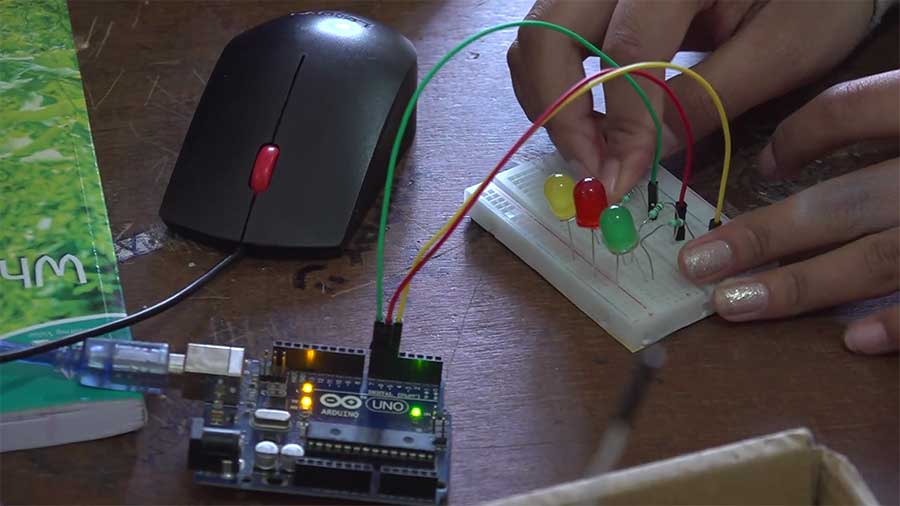
To empower rural youth and encourage them in the STEM fields, Jigme Namgyel Engineering College in Samdrup Jongkhar is providing a STEM camp. STEM stands for Science, Technology, Engineering and Mathematics. The College targets to cover more than 500 students from nine schools in Samdrup Jongkhar and one in Pema Gatshel.
 Recently, the five-day STEM camp at Minjiwoong Central School in Serthig Gewog was completed. 36 students took part in the camp.
Recently, the five-day STEM camp at Minjiwoong Central School in Serthig Gewog was completed. 36 students took part in the camp.
From programming to developing an application and introduction to technologies, the students learnt many new skills through the practical sessions.
“I am participating in this camp for the first time. The camp is useful. I learned about how to use motors in a robot, traffic lights and sensors,” said Ugyen Yangden, a student.
“We are from one of the remote areas and didn’t get such a platform in the past. When we heard about the camp, we were very excited to be part of it. The programme was useful. We knew about sensor which is important and useful in our daily life,” said Sonam Tobgay, another student.
It is a part of university-to-school mentoring to make STEM education accessible to rural youths.
According to Jigme Namgyel Engineering College (JNEC), after attending the programme, they expect the students to develop competitive skills in creativity and innovation.
“When we come here, they were not at all aware of all these things even the platform. Whereas in other countries or even in Thimphu, students use Fablab, and they develop an application using the tools. Whereas here, these students do have facilities to learn. Through this, we hope that they will learn by using such tools, showcase their creativity and ideas in some sort of science exhibition and encourage or motivate them to take up STEM fields,” said Sangay Chedup, Dean of Research and Industrial Linkages of JNEC.
Including Minjiwoong school, the College has conducted the STEM camp in three schools in Samdrup Jongkhar so far. The programme will end in March this year.
According to an educational review by a group of Bhutanese scholars, STEM education prepares students to become scientifically and technologically literate and contribute to an employable workforce. Students also develop critical skills and problem-solving skills, creativity, decision-making, leadership, and entrepreneurship through STEM education.
Kinley Wangchuk, Samdrup Jongkhar
Edited by Tshering Zam








